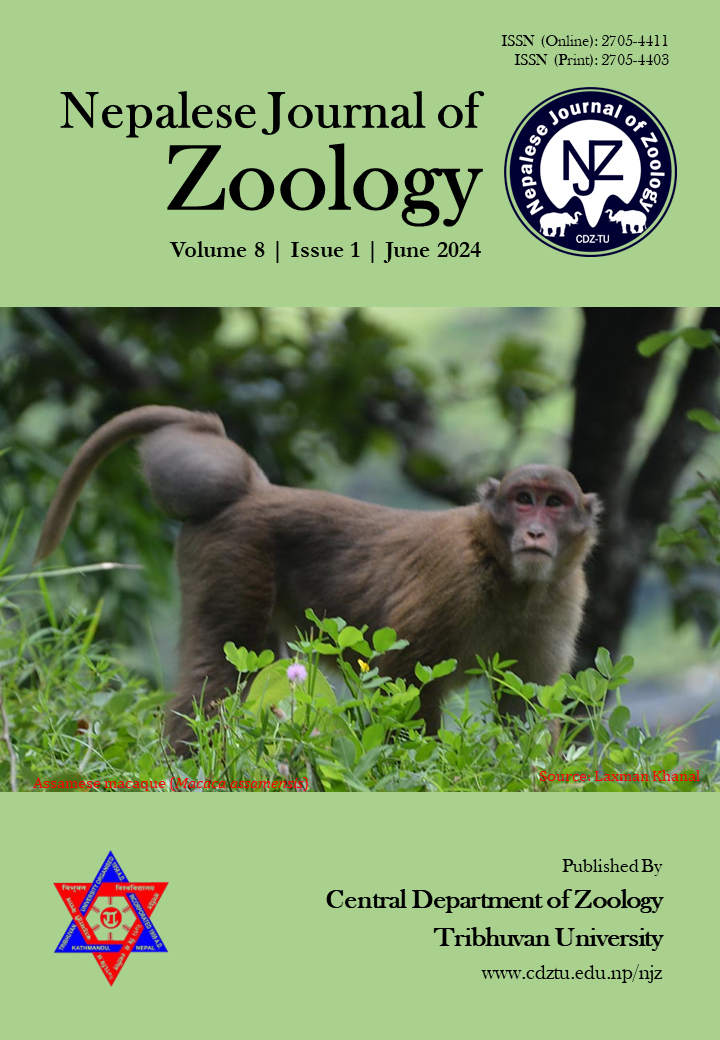Ethnozoological study of Tamang people in Konjyosom Rural Municipality, Lalitpur, Nepal
DOI:
https://doi.org/10.3126/njz.v8i1.67107Keywords:
Body parts; Ethnomedicine; Indigenous knowledge; Medicine; Tamang peopleAbstract
Ethnic/indigenous people of Nepal have a long history of using animals as medicine. The current study was conducted to determine the ethnozoological relationship, concerning the use of animals, their body parts, and animal products as traditional medicine by the people of Tamang community living in Konjyosom Rural Municipality in Lalitpur district of Nepal. The study was conducted in Chaughare (Ward Number 1), and the ethnozoological data were collected from local people and key informants through interviews, semi-structured questionnaire surveys, and direct field observation. Results showed that 78% of the respondents out of 100 were familiar with using animals as medicines. These people were reported to use 33 different animals (domestic: 8 species and wild: 25 species) for treating various illnesses and diseases in other ways. Considering the age and gender, female respondents and people of age (50-59 years) mainly used to prefer animal consumption for healing their illnesses and diseases. Furthermore, the oral route of administration (81%) and consumption of flesh via cooking were highly preferred. Their tendency to use animals as medicine was higher, so the risk of threatening a few important faunae may exist in the study area. This study will be baseline information for strategic conservation and management of wildlife in the study area or elsewhere within the country.
Downloads
Downloads
Published
How to Cite
Issue
Section
License

This work is licensed under a Creative Commons Attribution-NonCommercial 4.0 International License.
This license enables reusers to distribute, remix, adapt, and build upon the material in any medium or format for noncommercial purposes only, and only so long as attribution is given to the creator.

